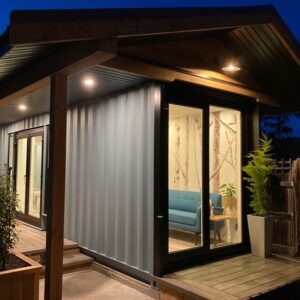
Sustainability at the Core
In the quest for a more sustainable future, how we build and inhabit our cities plays a crucial role. Green City Times is dedicated to exploring and promoting practices contributing to a healthier and more environmentally friendly urban lifestyle, and today, we shine a spotlight on an innovative solution – modular living – and how it aligns seamlessly with the principles of sustainability.
The Rise of Modular Living
Modular living, a concept gaining traction worldwide, embodies efficiency, cost-effectiveness, and a reduced environmental footprint. At the forefront of this movement are companies like West Coast Container Homes, based on Vancouver Island, which specialize in modular pod building. Modular homes are constructed using pre-fabricated components that can be easily assembled, offering an eco-friendly alternative to traditional construction methods.
One of the primary advantages of modular living is its inherent sustainability. Traditional construction generates a substantial amount of waste, whereas modular construction minimizes material usage and waste production.
Energy Efficiency and Urban Planning
A key aspect of sustainable living is energy efficiency. Modular homes can be designed to meet high energy-efficiency standards, integrating features like solar panels, energy-efficient appliances, and advanced insulation. This not only reduces the environmental impact but also results in lower energy bills for the occupants, making sustainable living more accessible and economical.
Modular pods complement the principles of smart urban planning by offering a flexible and scalable housing solution. These structures can be easily integrated into existing city landscapes, optimizing land use and promoting the creation of green spaces.
The ability to stack and arrange modules efficiently allows for the development of compact and sustainable urban environments.
Affordability and Accessibility
Sustainability shouldn’t come at the expense of affordability. Modular pods address this concern by providing an economical alternative to traditional housing. The streamlined construction process reduces labor costs and allows for quicker project completion, making sustainable living more accessible to a wider range of individuals and communities.
So, as we strive to build a greener future, modular living emerges as a beacon of sustainability and economic viability. By embracing prefab modular pods, we take a significant step towards creating cities that are not only sustainable but also affordable and adaptable to the changing needs of our communities.
To explore more about modular living and sustainable construction practices, visit West Coast Container Homes at [westcoastcontainerhomes.ca]